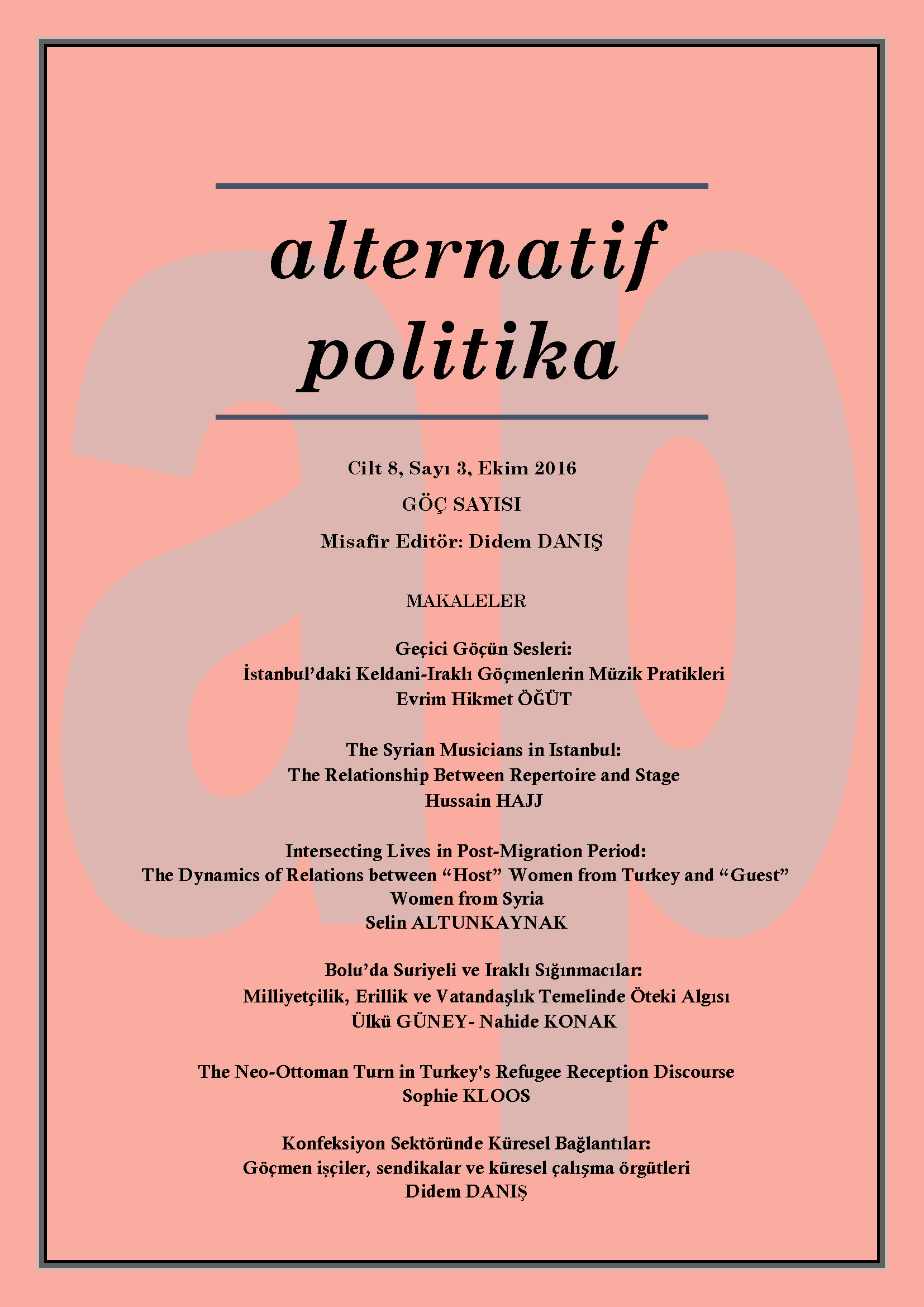KONFEKSİYON SEKTÖRÜNDE KÜRESEL BAĞLANTILAR: GÖÇMEN İŞÇİLER, SENDİKALAR VE KÜRESEL ÇALIŞMA ÖRGÜTLERİ
GLOBAL DEALINGS IN APPAREL MANUFACTURING: MIGRANT WORKERS, TRADE UNIONS AND GLOBAL LABOR INITIATIVES
Author(s): Didem DanışSubject(s): Social Sciences, Economy, Sociology, Labor relations, Migration Studies, Sociology of Politics, Globalization, Socio-Economic Research
Published by: Rasim Özgür DÖNMEZ
Keywords: Globalization; apparel manufacturing; migrant labor; regularization; trade unions; labor organizations
Summary/Abstract: This article describes the effects of economic globalization on Turkish apparel manufacturing, within the framework of the debate on granting work permits to Syrian refugees. The information that is used in this paper is based on the fieldwork that is realized in Istanbul during August-December 2015 and later in the first half of 2016. Experts of the textile sector, garment production workshop owners, trade unions and international fast fashion brands representatives were interviewed and two focus group meetings were conducted. This helped to grasp the position of different actors on regularization of Syrian labor force before the decision taken by the Turkish Government to issue work permits for Syrian refugees in January 2016. The findings of the research show the prevalence of informality and the precarious conditions for the workers of the apparel manufacturing in Istanbul and demonstrate that foreign migrant workers can incorporate into it only from the very below of the labor hierarchy. The article also reveals the weakness of local trade unions both in terms of the unionization rate and efficiency. In such a context, global labor organizations become more influential than trade unions in participating into decision making processes about work conditions and the rights of foreign workers. In our case, they played a particular role as “mediating NGOs” by bringing together multiple stakeholders such as international labor agencies, global fast fashion companies and governmental agencies for the regularization of Syrian workers. However, despite the increasing importance of organizations such as FLA and ETI in the field of labor rights, they seem far from filling the void of the unions.
Journal: Alternatif Politika
- Issue Year: 8/2016
- Issue No: 3
- Page Range: 562-586
- Page Count: 25
- Language: Turkish

